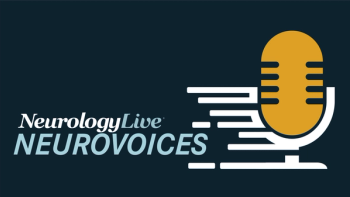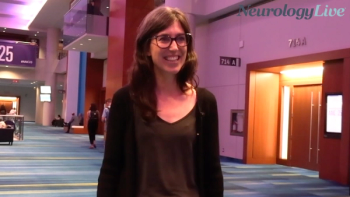
The neurologist in the Department of Neurology at Saratoga Hospital Medical Group shared what excites her most about the future of neurology, specifically for movement disorders, in 2026.

The neurologist in the Department of Neurology at Saratoga Hospital Medical Group shared what excites her most about the future of neurology, specifically for movement disorders, in 2026.

The senior director of the Fluid Biomarker Program at Banner Health highlighted the evolving role of blood and fluid biomarkers in Alzheimer disease research and clinical practice.

A pair of pediatric epileptologists highlight the systemic and patient level factors driving inequities in infantile epileptic spasms syndrome care and outline paths toward more equitable diagnosis and treatment.

The neurosurgeon at Cleveland Clinic discussed the goals of the AES thalamic neuromodulation special interest group and the major clinical and research priorities shaping the future of neuromodulation for drug resistant epilepsy.

At CTAD 2025, the chief scientific officer at the Banner Alzheimer’s Institute discussed emerging antiamyloid therapies, clinical trial insights, and treatment duration in Alzheimer disease.

The pediatric epileptologist at Boston Children’s Hospital discussed national variability in treating infantile epileptic spasms syndrome and the evidence gaps that continue to shape clinical decision making.

At MDS 2025, the professor of neurology at Northwestern University Feinberg School of Medicine discussed the evolving landscape of disease-modifying clinical trials in Parkinson disease.

The vice president and Asset Head of Rare and Ultra-Rare Diseases at UCB provided clinical perspectives on the FDA approval of Kygevvi, the first marketed treatment specific for patients with thymidine kinase 2 deficiency (Tk2d).

The associate professor of physical medicine and rehabilitation at Virginia Commonwealth University discussed his passion for educating others about electrodiagnosis and ultrasound in neuromuscular disorders.

In honor of International Stuttering Awareness Day, the founder of the Stuttering Treatment and Research Society discussed understanding the diagnosis of stuttering and the importance of early intervention for patients.

The neurologist at University of British Columbia discussed how abnormal brain plasticity influences Parkinson progression and highlighted the importance of integrating basic science with clinical care.

The vice president of scientific engagement at the Alzheimer’s Association discussed the organization’s recently published first guidelines on blood-based biomarkers, highlighting accuracy, clinical use, and patient considerations.

The director of the Adult Genetic Epilepsy Program at the University of Toronto shared “back-to-school” guidance on best practices in helping young patients with epilepsy transition to adult care.

The VP of clinical development at Alkermes detailed phase 2 results for alixorexton, an oral, selective orexin 2 receptor agonist, in narcolepsy type 1, including benefits for fatigue, cognition, and weakness.

At AAIC 2025, the associate professor in the Department of Psychiatry at McGill University talked about the strengths and limitations of PET and blood biomarkers for Alzheimer disease. [WATCH TIME: 5 minutes]

The director of the Neuroethics Program at Cleveland Clinic discussed the evolving role of ethics in neurological clinical trials, highlighting skill development, safeguards, and patient-centered decision-making.

The head of the neurology department at Vall d’Hebron University Hospital provided clinical thoughts on fremanezumab’s expanded approval in pediatric migraine, the phase 3 SPACE study, and where future treatment may hold.

The Harold I. Nemuth Chair in Neurological Disorders at Virginia Commonweath University discussed the rationale, results, and future directions of GLP-1 RA therapy as a novel treatment strategy for idiopathic intracranial hypertension.

The cofounder and chief science officer of the Alzheimer's Drug Discovery Foundation recapped some of the notable recent developments in the Alzheimer disease field presented at the 2025 Alzheimer’s Association International Conference.

The associate professor in the Department of Psychiatry at McGill University discussed the strengths and limitations of PET and blood biomarkers in identifying early Alzheimer disease.

Members from Nuvig Therapeutics discussed the rationale and therapeutic development of NVG-2089, a novel anti-inflammatory agent being studied for chronic inflammatory demyelinating polyneuropathy.

The professor and chair of neuroscience at UT Southwestern Medical Center offered an overview on his keynote lecture presented at AHS 2025 on the circadian clock in relation to headache.

The chief medical and scientific officer at Harmony Biosciences discussed the pharmacologic rationale and preclinical development of BP1.15205, a novel orexin receptor 2 agonist for hypersomnolence.

A physician assistant specializing in Parkinson disease shared key clinical considerations for selecting and educating patients about on-demand therapies for the movement disorder.

The professor of neurology at the Geisel School of Medicine at Dartmouth broke down the clinical utility, supporting data, and practical use cases for STS101, a newly approved nasal powder formulation of dihydroergotamine for acute migraine.

The director of the John A. Schafer, MD Multiple Sclerosis Achievement Center at Dignity Health discussed the effect of loneliness and social isolation on individuals living with multiple sclerosis.

The associate vice president of research at National MS Society talked about the need for evidence-based wellness strategies in multiple sclerosis, particularly focusing on psychosocial interventions.

The research portfolio director at the Muscular Dystrophy Association highlighted advances in gene-targeted therapies and biomarker development as potential key drivers of progress in ALS.

Renowned migraine specialist Stewart Tepper, MD, highlighted the groundbreaking FDA approval of CT-132, the first digital therapeutic for migraine prevention, and what it means for clinicians, patients, and future care models.

The director of sleep medicine at Nemours Children's Health in Florida talked about the growing role of multidisciplinary care and novel therapies in managing pediatric sleep disorders.